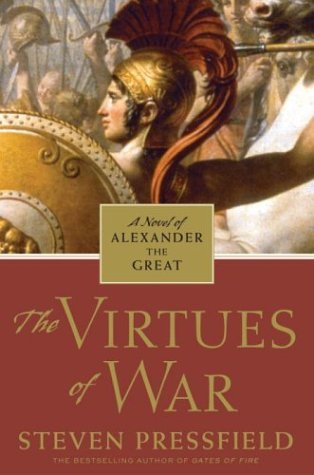The Virtues of War
“I have always been a soldier” are the first words we hear from Alexander the Great in this new biographical novel. Driven by his daimon, Alexander strives for perfection in war, with the Persians and others in his path providing more of an outlet than an obstacle. The novel has little to say about Alexander’s family or his wives or his eunuch or even Hephaestion, except to the extent he was a friend and reliable officer. The brother-in-law to whom Alexander narrates the story “prefers the bloody parts,” so we hear much of warfare, particularly the cavalry at the center of every action. Even the horse Bucephalus comes alive as a savage warrior, and together he and his rider can turn the tide of battles involving hundreds of thousands. Yet Alexander is even more of a general than a warrior, and his key to victory is making sure that he always outnumbers the enemy at the crucial point, even when the overall numbers are greatly against him.
The key moment in this version of Alexander’s life comes when Macedonian veterans refused to advance farther into India, and Alexander must consider turning back for the first time. He is made to realize that his conquests have done little to change the way people are governed except for the introduction of some new tax collectors. Alexander has no more interests in governing than would any other tornado sweeping through the plains of Central Asia. At the end, Alexander had come as close to conquering the world as anyone, but he recognizes the fundamental failure of his mission and the antipathy he had aroused in those who had been his friends.










